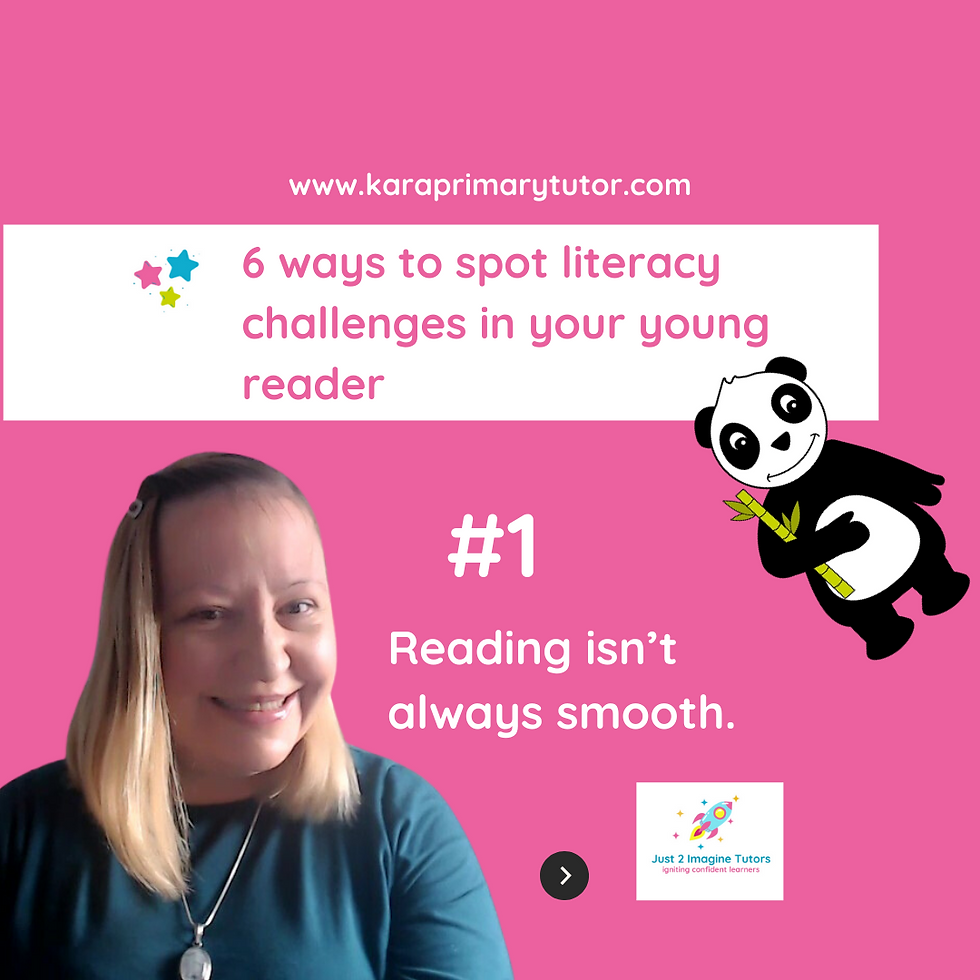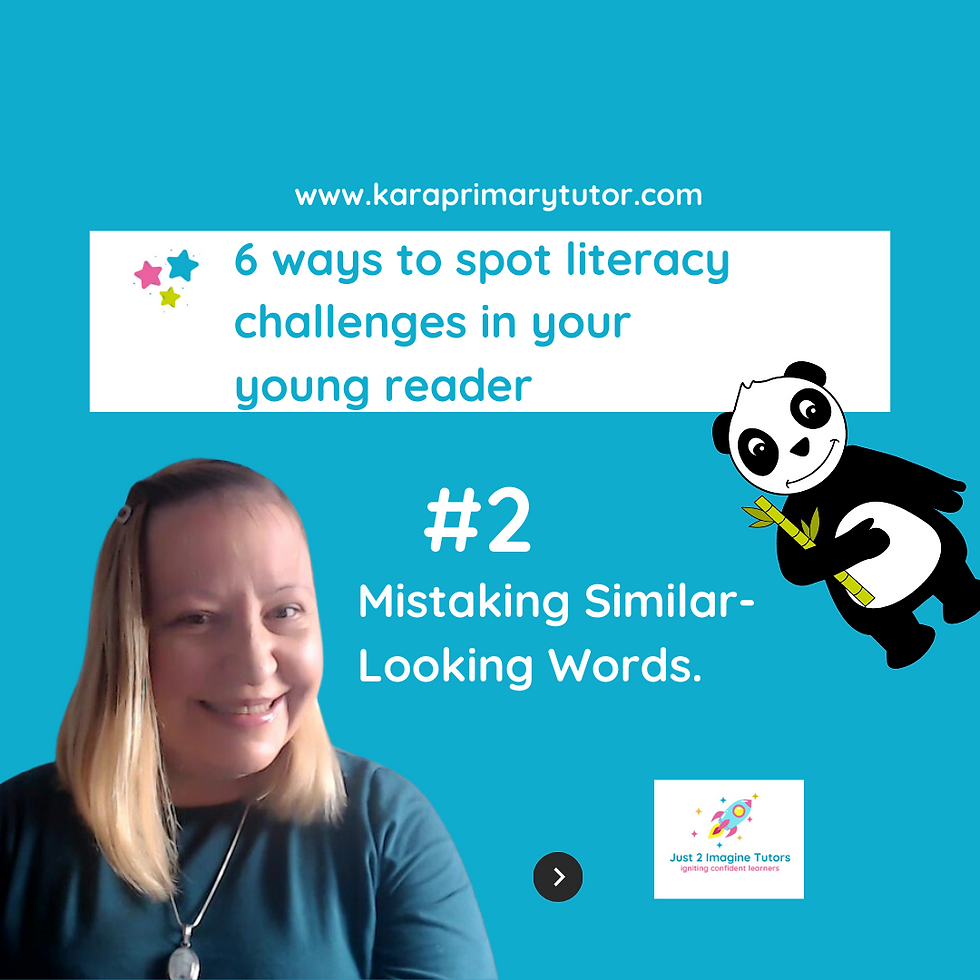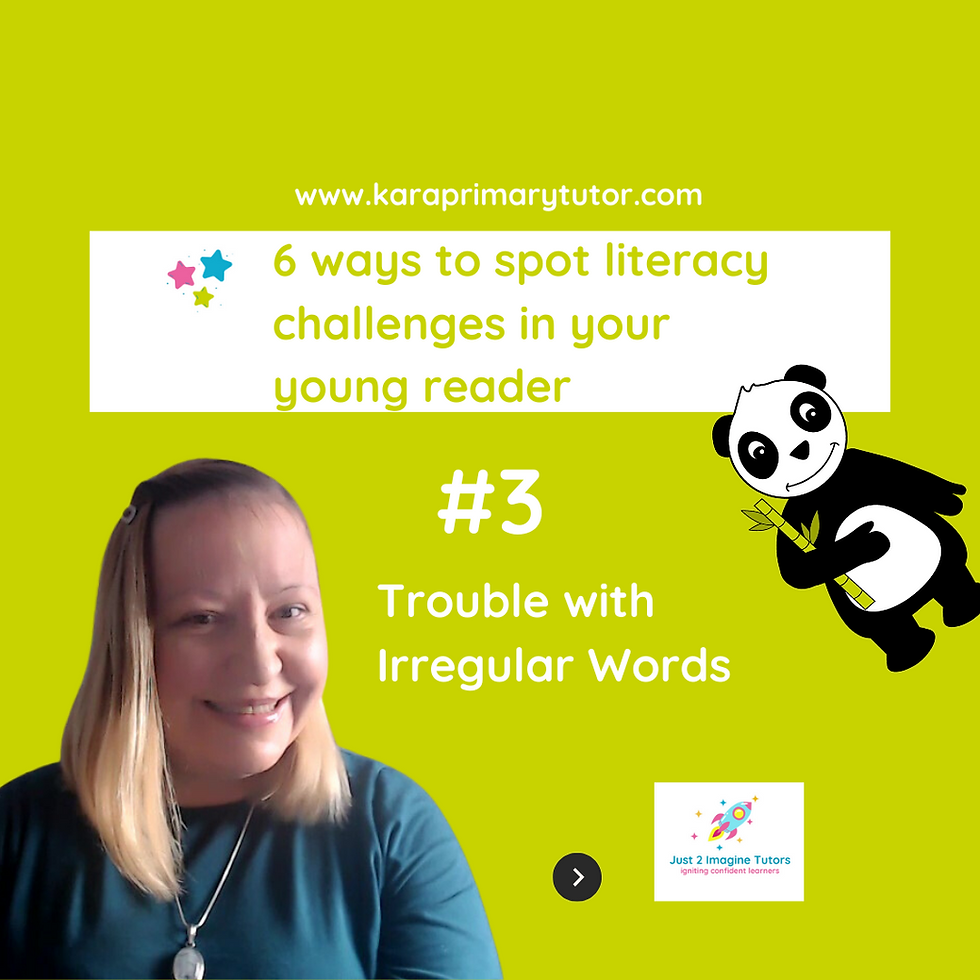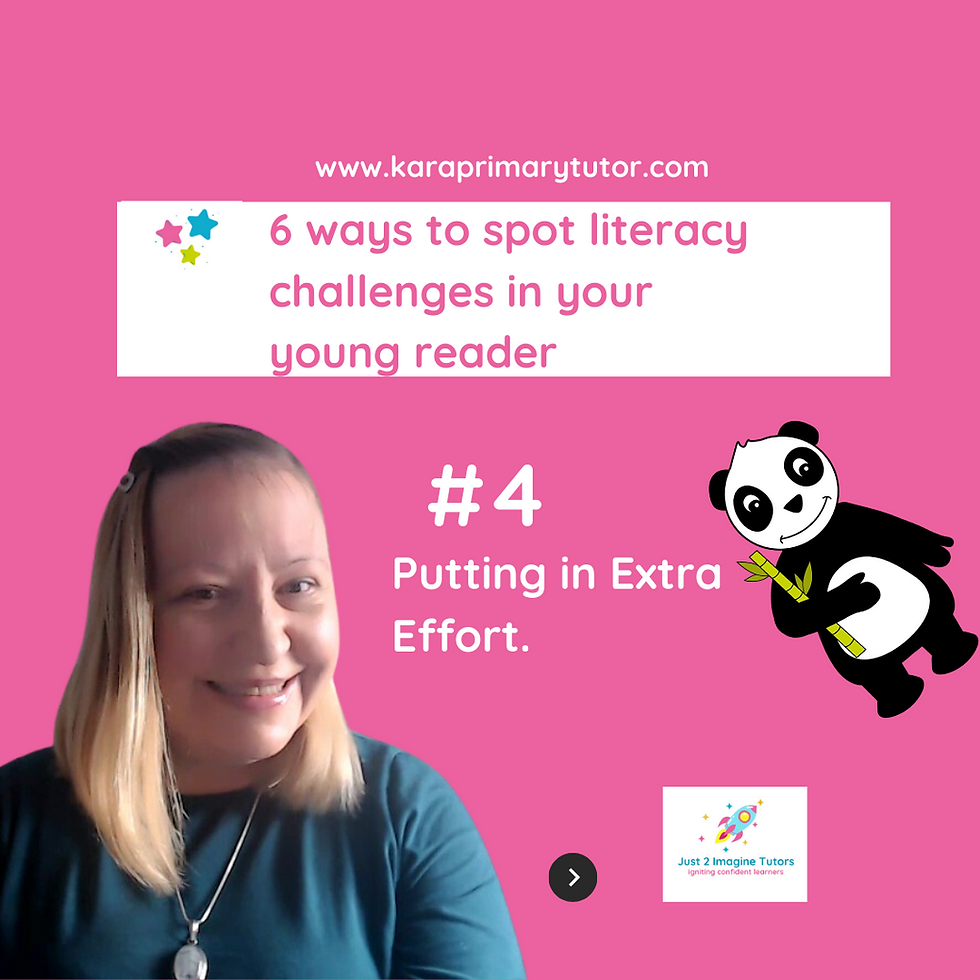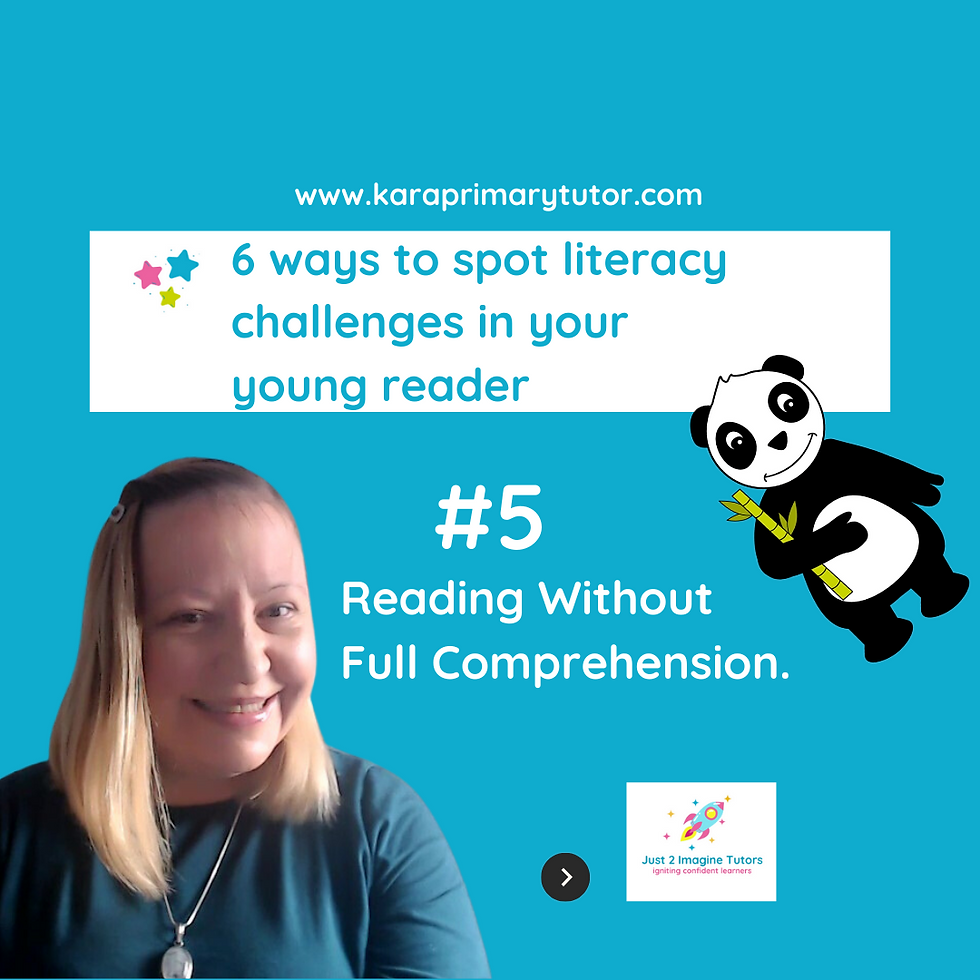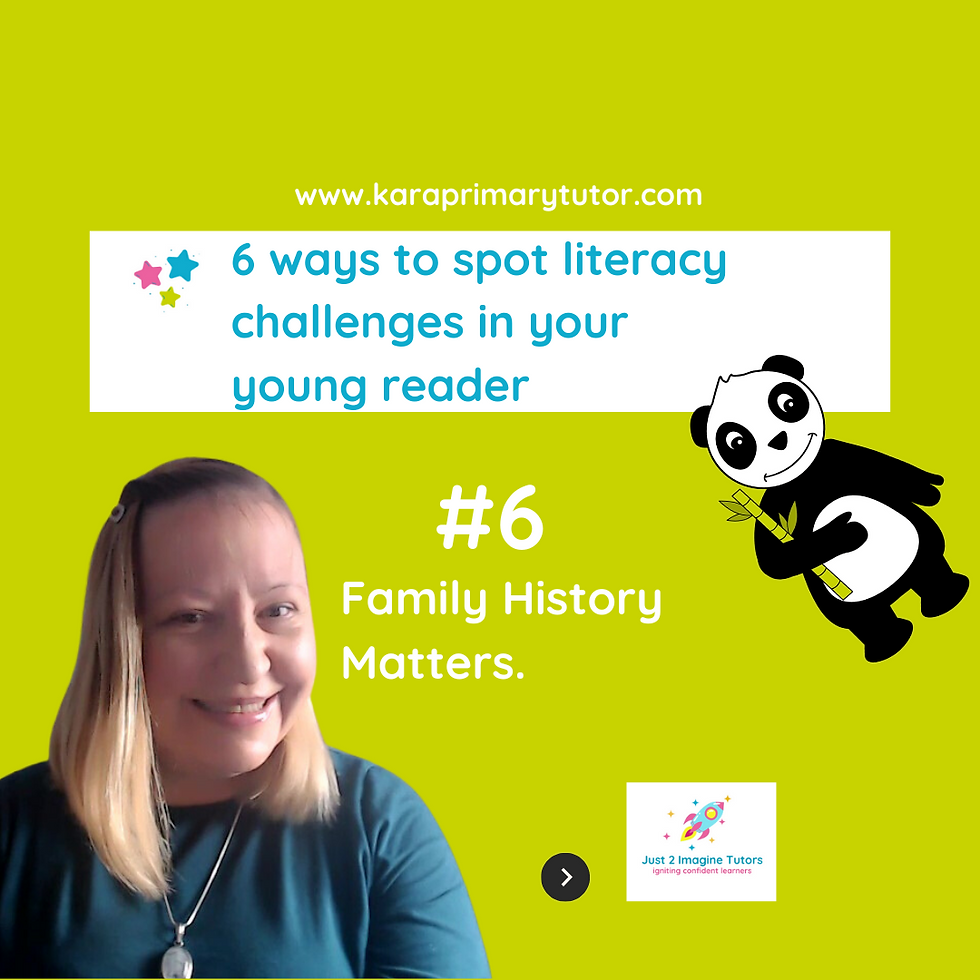- Kara Cook (Writer)

- Oct 13, 2022
- 1 min read
Updated: Nov 17, 2024
Expert tutor blog with hot tips for supporting your KS1 child's phonics, reading, writing and tutoring.

Hi, I'm Kara! As an expert phonics tutor, reading specialist and experienced primary teacher, I'm passionate about helping children unlock the joys of reading and writing.
Here on my blog, you'll find tips, insights and activities all focussed on phonics, early literacy, and nurturing confident readers. Stay tuned for more!
Join here to get creative ideas, fun activities and expert tips delivered straight to your inbox-everything you need to make reading with your
little one a magical and confident adventure!
.












